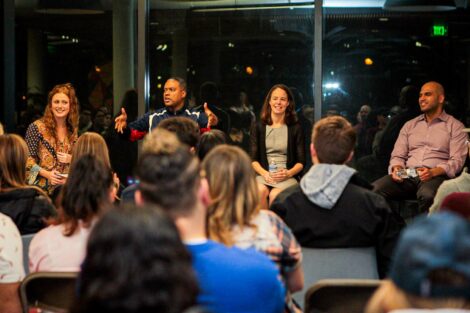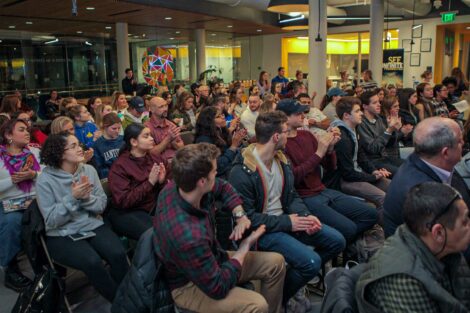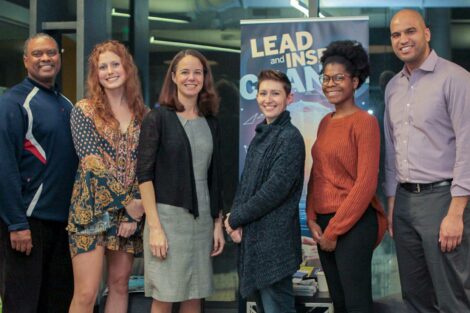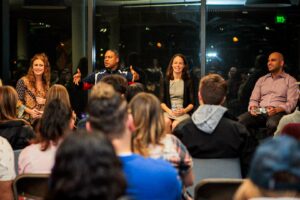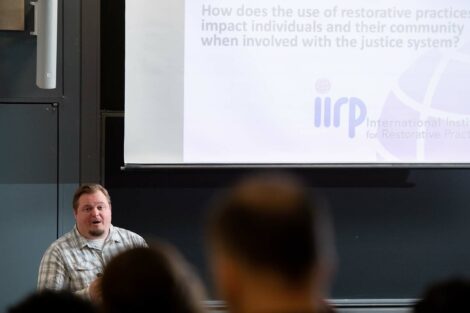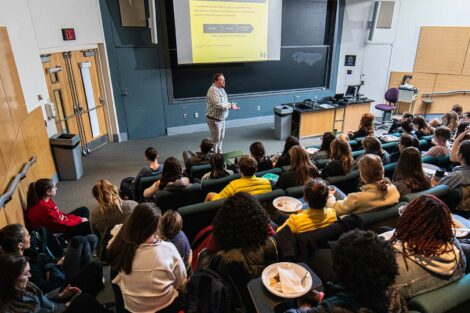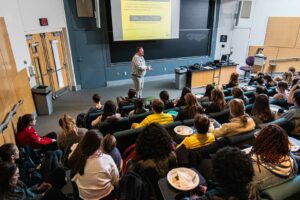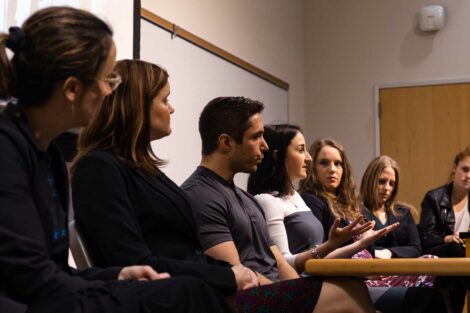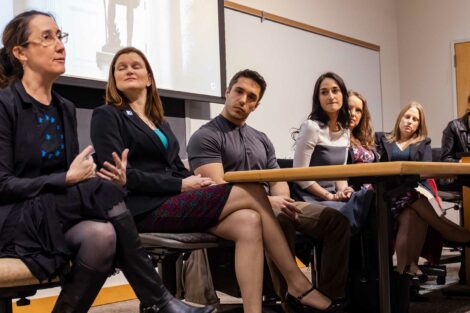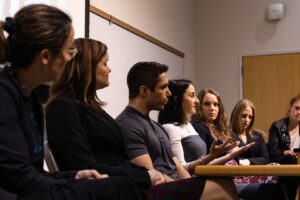Leading awareness week, students better understand how to reform criminal justice system
Racial profiling. Police brutality. Predatory drug laws. Students didn’t shy away from hefty topics last month during Criminal Justice Reform Awareness Week, and those topics were just on day one.
All week students hosted roundtable discussions, panel presentations, educational lectures, and an art gallery to help raise awareness about issues in and around the criminal justice system (CJS).
Organizers included Katie Hill ’20, Izzy Doonan ’20, Ciara O’Connor ’22, Ryana Jones ’20, Josselyn Alvarenga ’20, Jonathan Sosa-Ponce ’21, and Amy Wen ’20.
Highlights included a conversation on the role of education in the CJS featuring Gerard Robinson from Center for Advancing Opportunity, Yusuf Dahl from Dyer Center for Innovation and Entrepreneurship, and Alison Badgett from Petey Greene Program. Talking about the ways innovation could recognize barriers and generate solutions, the panel is nicely summarized by Robinson in his recent blog post, where he notes, “… I walked away from my visit to Lafayette College with optimism.”
From International Institute for Restorative Practice, Koury Cook shared the core principles of restorative practices, emphasizing how people in a relationship identify how they were harmed, acknowledge their needs and responsibilities, understand the impact of their actions, and repair the harm.
Then community members, faculty, and alumni joined for a panel on careers in the CJS and its ancillary services. Panelists included Dan Massaro and Sara Massaro ’15 from Safe Harbor; Tara Gilligan, visiting assistant professor of women’s, gender, and sexuality studies; Karen Hinkle from Crime Victims Council; and Julianne Danchak and Rebecca Kulik ’05 from the District Attorney’s Office.
Each shared advice, ideas, and success stories on advocacy, work, and preventing burnout.
Then art from participants in the Landis Center’s MOSAIC Journey Home, an expressive art-based program and collaboration between Lafayette students and women in Northampton County Correctional Facility. The programming integrates trauma-informed care and restorative practices with expressive arts.
“The effort from our MOSAIC students was palpable as you walked into each event. Not only did the turnout exceed over 400 students for the week’s events, but each event also yielded thoughtful and challenging conversations,” says Melissa Ash, Landis Center’s assistant director and MOSAIC adviser. “This week is important specifically for those involved in challenging conversations. Change to our criminal justice system will only occur when we begin to dispel false notions and challenge our own positions on these topics.”
